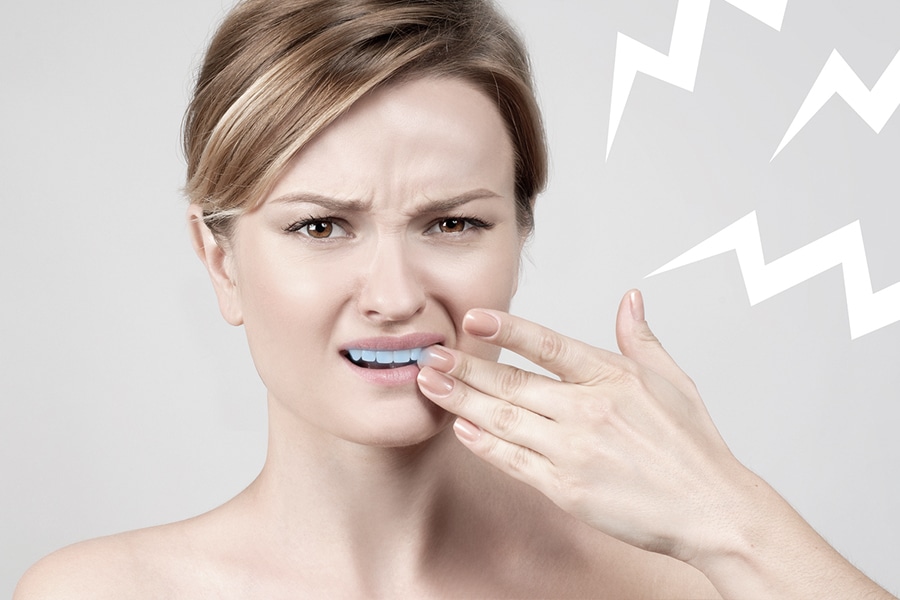Teeth sensitivity is more common than you think. It is so common that people tend to disregard it. The sensitivity may be in a form of sharp, temporary and sudden pain or discomfort. Your teeth may become sensitive when exposed to certain substances or temperatures, like cold drinks.
Determining the Cause of Tooth Sensitivity
There are various possible causes and factors that give rise to tooth sensitivity. People with receding gum line and those with certain dental conditions tend to report the most sensitivity. The best way to find out the cause of sensitive teeth is to undergo oral exam and ask for details from your dentist.
While teeth sensitivity can affect people of various age and background, there are factors that increase the occurrence of sudden tooth sensitivity. They are listed as follows:
- What You Eat. There are certain foods and drinks that can cause sensitivity. These include hard and acidic foods, and those that contain substances that are harmful to the teeth. Examples of which are juices and sports drinks. Chewing ice can also harm the teeth as it can lead to cracked tooth enamel overtime.
- Rough Teeth Brushing Habits. We always recommend regular brushing to improve oral health. However, abrasive and aggressive teeth brushing habits can do more harm than good. Do not brush your teeth to harsh and always follow the proper way of brushing your teeth. Avoid using hard-bristled toothbrush.
- Teeth Whitening. One of the temporary side effects of using whitening products is sensitivity. Being temporary, the sensitivity just goes away on its own overtime. However, harsh whitening treatments or using such products too frequently can lead to more serious sensitivity. There are products that contain harsh chemicals which remove the stains off your teeth. Unfortunately, in the process, these chemicals also remove the protective enamel of your teeth, leading to sensitivity.
Reduce your risk or prevent tooth sensitivity by asking your dentist first before using any teeth whitening treatment or products.
- Tooth decay. Exposed dentin can cause sensitivity. This happens when you have cavity in your teeth. Without proper oral hygiene and dental measures, this cavity can eat off the tooth enamel and expose the dentin. The result is teeth sensitivity. If this is what caused your teeth to become sensitive, the best option is to get a filling or crown from a dental specialist.
- Gum Problems. Sometimes, the cause of the sensitivity is not the tooth, but the gums. Certain gum diseases can lead to sensitivity. This includes receded gums. Other gum-related issues include toothbrush abrasion, excessive flossing, prep work for a crown, and pocket reduction surgery.
- Stress. Stress can greatly affect one’s health, including dental health. Studies show that people who are stressed and those with sleeping disorders are prone to teeth grinding, otherwise known as bruxism. Grinding your teeth can cause many dental problems, including sensitivity.
- Eating disorders. People with eating disorders have poor dental health. People who frequently vomit because of bulimia are prone to developing teeth sensitivity. This is because what they vomit contains stomach acids. Anything acidic can damage the surface of the teeth and their protective layer. This is also true with acid reflux.
- Tooth sensitivity after filling. Filling is a procedure necessary to treat tooth decay and certain dental issues. However, in some cases, filling can cause tooth sensitivity. The good news is that this sensitivity is temporary and is more of a side effect. The sensitivity would improve and go away on its own within a few weeks after the filling procedure. It may take months, but this is normally not a cause of concern as long as there is gradual improvement.
However, when the tooth sensitivity becomes persistent, you may need other procedure. When your teeth only become suddenly sensitive when biting or chewing, you may need bite readjustment. Other options include lowering the filing or changing the composite used, depending on the findings of the dentist. If the sensitivity still persists, you may need to undergo root canal procedure.
Treatment and Possible Solutions
There are various possible solutions for sensitive teeth. Finding out the cause of sensitivity helps in formulating the best treatment plan. Depending on the cause and the severity of the sensitivity, the treatment options range from home remedies to dental procedures.
The common remedies you can try at home include the following:
- Desensitizing toothpaste. There are over-the-counter and prescription toothpastes that are specifically created for sensitive teeth. To be sure and safe, consult a dentist on what kind or brand to use. As a rule, avoid tartar-control toothpaste and use only fluoridated toothpaste when you choose one for teeth sensitivity.
- Avoid highly acidic beverages and foods. Eat healthy.
- You can also use fluoridated mouthwash.
- Use soft-bristled toothbrush.
In certain cases, you may need to undergo certain dental procedures to reduce or treat your sensitivity. The following the possible treatment option for you:
- Inlays or crowns. These are usually used to fix tooth decay and other similar dental issues.
- Fluoride gel.
- Surgical gum graft. This is the solution if the sensitivity is caused by an eroded gum tissue. This protects the root of the tooth affected and reduces sensitivity.
- Root canal. This is usually the last resort. This is only availed of when all else fails.
Above all these, do not forget to observe proper oral hygiene. You can prevent a lot of dental and oral problems when you take good care of your teeth, gums, tongue, and mouth.
Schedule an Appointment with EDVP
If your teeth become suddenly sensitive, it may be temporary and may just go away on its own. But then again, it could be worse than you think it is. Scheduling an appointment with a trusted dental professional is the best way to go.
Here at EDVP, we do not just treat teeth sensitivity and other dental problems. We see to it that our patients not only go home with a healthy smile. We make sure that they maintain good dental habits. We educate, we go beyond than just treating and performing dental procedures. That is the kind of care you can expect from us. Schedule an appointment with us today.

